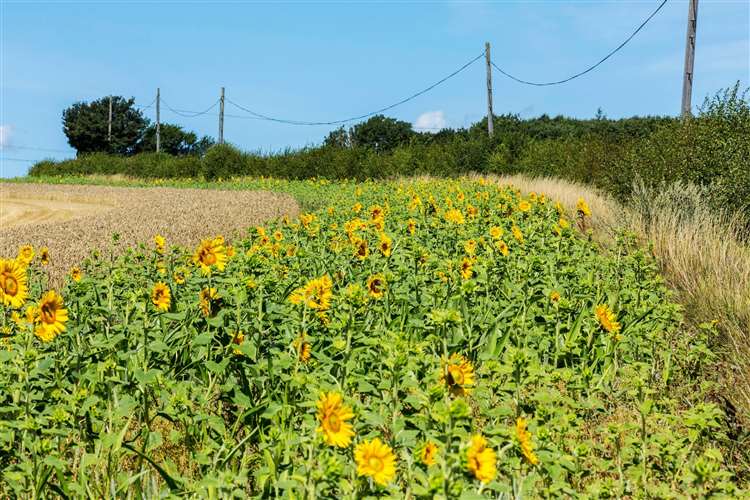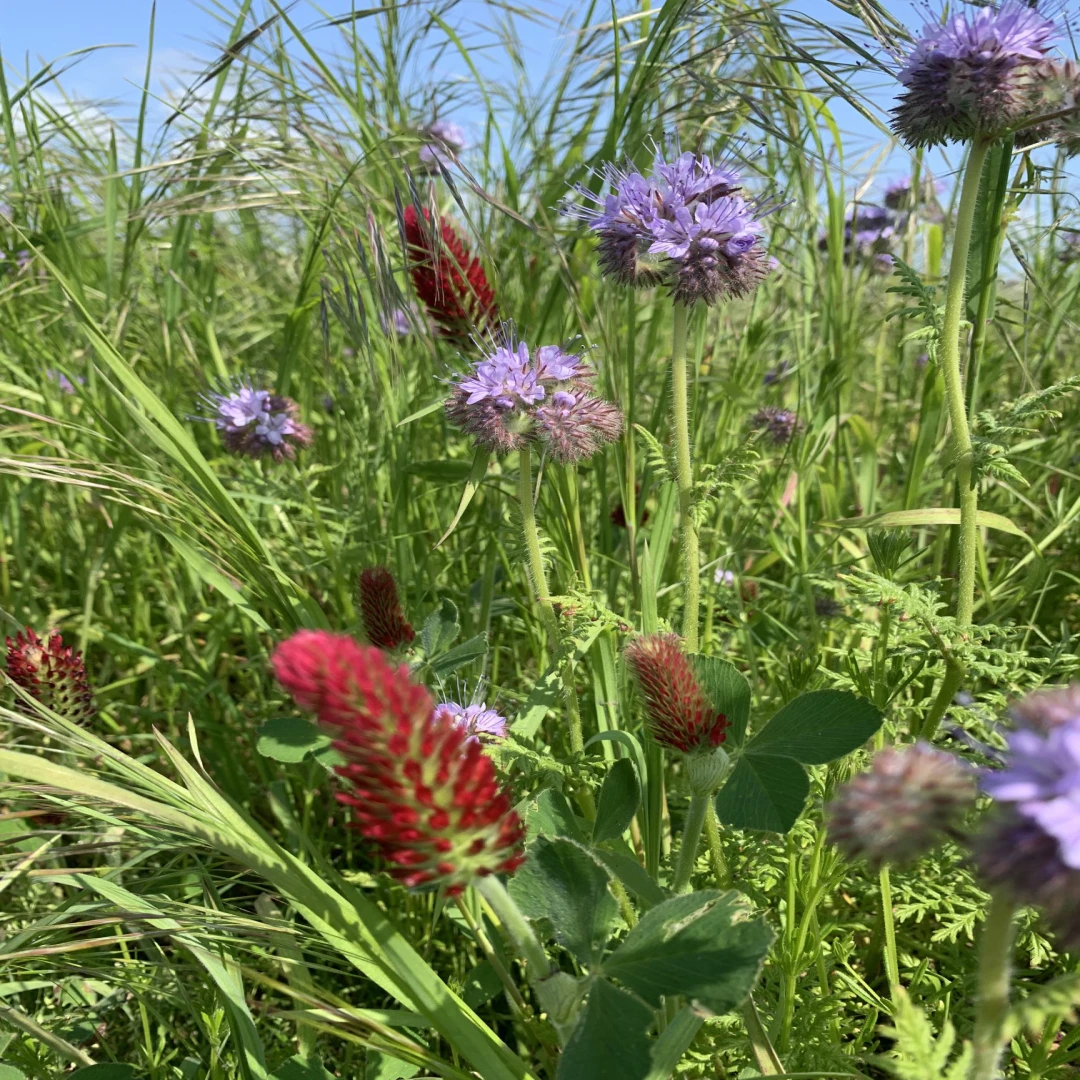WHAT IS REGENERATIVE FARMING?

Regenerative farming is something we speak about quite often, but what does it mean and how do we put it into practice at Nonington Farms? Put simply, it’s about farming with nature rather than against it, to improve the health of the land and benefit the wider ecosystem.
The key principles of regenerative farming in agriculture involve, protecting the soil surface, minimising soil disturbance as much as possible, rotating crops, integrating livestock, and always maintaining a living root.

At Nonington Farms, we have successfully put multiple regenerative farming methods into practice, and we are always trialling and learning new things as we go.
This month, we have been trialling a new form of weed control by way of a rotary hoe. The benefits of using a tool like this reduces weeds without the use of chemicals which is therefore better for the wider ecosystem. It was interesting to learn that the weather conditions need to be correct before use.
IN OTHER NEWS…
We have had lots of school farm visits this month as part of our ongoing outdoor education programme.
 We always enjoy giving schools a farm tour and teaching the children about local, sustainable food and farming practices.
We always enjoy giving schools a farm tour and teaching the children about local, sustainable food and farming practices.
The children also got to see a live sheep dog demonstration and speak to Jack Scott about growing vegetables on the farm.
Jack is a new entrant to farming, and he is growing a range of beautiful, chemical- free vegetables across two sites between Nonington and Thanet, covering approximately 2 acres.
Jack is all about regenerative farming practices and soil health is fundamental in producing his nutritionally rich vegetables. He also uses cover crops, livestock, seaweed, manure, and compost and explains all about where our food comes from, composting and recycling.
We discussed the importance of hedges and feeding birds, whilst collecting materials along our way to make a birds nest after the tour.
The Kent Wildlife Trust joined us on the farm to learn how we are farming regeneratively, and the team joined a farm walk on a local farm where we discussed topics such as soil health, grassland management, and the importance of strip grazing to aid with carbon sequestration.
Finally for this month’s roun dup, we are happy to see the wild bird and bumblebee AB9 plots established and absolutely full of colour. Just waiting for the bees to arrive! Stay tuned for a bee watch update.
dup, we are happy to see the wild bird and bumblebee AB9 plots established and absolutely full of colour. Just waiting for the bees to arrive! Stay tuned for a bee watch update.
TO ROUND UP…
We always enjoy sharing and exchanging knowledge of what it is to be a sustainable farm today, continuing to learn as we go and hoping to inspire the next generation in the importance of sustainability in all its forms.
Another busy month and harvest is just around the corner!
